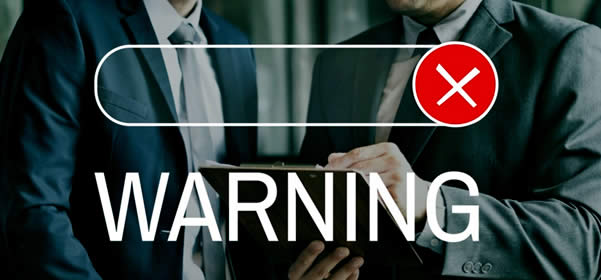Two months ago we covered what was going on in the world of internet marketing and PayPal. Here’s an update:

As you know, recently PayPal closed or limited a number of internet marketer’s accounts. No warning, no nothing. They just shut people down without giving them a chance to correct any problems – problems the marketers generally don’t even realize are there – if they are there at all.
No doubt PayPal is doing this to limit risk. Rather than waiting for something terrible to happen, they’re taking what they think are preemptive strikes in the name of combatting fraud.
For example, Joe Marketer is doing a steady $5,000 a month. But thanks to his first big product launch, Joe is suddenly doing $50,000 in one month. Must be fraud, right? Well, no. You and I know that a big launch can bring in a lot of money fast. But to PayPal, a sudden increase in revenue can spell trouble, and they limit or close the account.
Making matters worse, we seldom find out exactly why PayPal does these things. We can take educated guesses, but they won’t even tell the account holders they’ve shut down what their real reasons were.
You might have 100 accounts in a month that suddenly have a big influx of revenue, and two of them get shut down. Why those two? Why not the other 98?
The point is, no one is entirely safe. And that includes not just product owners, but affiliates, too.
What we do know is that PayPal seems to be cracking down right now on certain products, vendors, niches and practices that they deem to be high risk.
How can you limit your risk?
First, don’t rely just on PayPal. Get yourself an account at either Stripe, ClickBank or Authorize.net before you need it. Preferably, get an account at all three if you don’t already have them.
If you are forced to start using exclusively Stripe instead of PayPal, you will likely notice it does hurt your sales somewhat. Customers are used to PayPal and generally prefer it then using a system they’re not familiar with.
But it’s better than having no option at all. If PayPal suddenly limits your account and you’re already set up on Stripe, you can switch over in a heartbeat and continue to receive payments.
Second, limit your exposure to other business PayPal accounts.
Let’s say you’re a vendor and you make payments to an affiliate who gets shut down by PayPal. PayPal may then take a look at your business because you were sending money to the offending account.
Or let’s say you’re an affiliate, and the product vendor gets shut down by PayPal. Again, PayPal might also shut you down, since you were receiving payments from this vendor.
It has happened. One account gets shut down, and then multiple accounts somehow associated with that first account are shut down as well.
Because of this phenomenon, the IM industry has made some significant changes within affiliate platforms such as JVZoo and Warrior Plus.
JVZoo now takes Stripe, Authorize.net, Zift, and Payoneer.
And JVZoo now allows affiliates and vendors to place payments on delay.
Instant payments can be a red flag to PayPal, and possibly problematic on several levels. But as a JVZoo vendor or affiliate, you can log into JVZoo, go to your account, click the edit button, and force commissions to be delayed.
Similarly, Warrior Plus now offers the ability for both vendors and affiliates to force “wallet” payments on their accounts.
With the “wallet,” Warrior Plus acts as an escrow account between vendor and affiliate.
Also, Warrior Plus has just rolled out its “PayPal Plus.” For vendors, this means you only receive your portion of the sale earnings. Instead of accepting the full sale price as you did with adaptive payments, you only receive your part, with everything else going to the Warrior Plus Wallet, which then pays any affiliates and partners involved in the sale.
This makes for easier accounting, easier refunds and less risk of PayPal scrutiny.
Third, consider placing a portion of your business on ClickBank.
ClickBank is not a “middleman” platform like JVZoo and Warrior Plus. Rather, they take full responsibility for the product, which they ‘buy’ from the vendor and sell to the customer.
ClickBank uses its merchant account and PayPal accounts. They have a fraud prevention team that beats anything in the industry.
And because they are the legal vendor, they collect all appropriate sales taxes for jurisdictions around the world. They pay the affiliates, and they handle the 1099’s. They also have extensive support staff for vendors, affiliates, and customers.
And of course, they have a ton of active affiliates as well, to help you promote your products.
The two drawbacks to ClickBank are they charge a bit more than JVZoo and Warrior Plus, and they are more focused on niches outside of the internet marketing realm.
However, with the recent round of PayPal account closures and other changes, more internet marketers are moving back to ClickBank.
Fourth and finally, above all else, focus on building your list and your audience.
As long as you have an active customer base that loves you and your products, you’ll be able to shift them from one payment platform to another seamlessly, regardless of what PayPal or any other entity does in the future.

